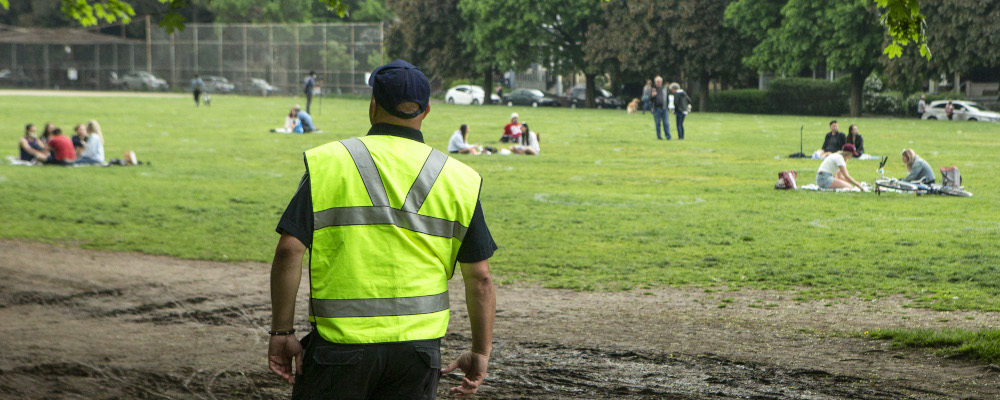Rudyard Griffiths observes that the pandemic has put a strain on Canadians’ satisfaction with the social contract with our government.
Good.
The idea of a social contract is an old one, going back to John Locke, who believed we are born with rights, but we agree to obey the laws of the government in return for security and prosperity. We can be held to our end of the contract, which is why we can be punished when we break the law.
MORE SIGNAL. LESS NOISE. THE HUB NEWSLETTER.
If the government doesn’t hold up its end, “it is the Right of the People to alter or to abolish it, and to institute new Government, laying its foundation on such principles and organizing its powers in such form, as to them shall seem most likely to effect their Safety and Happiness.”
This is a familiar idea to Canadians because, as the excerpt above suggests, it’s the idea behind the United States’ government. But we should remember that by the time the United States declared independence, the British tradition — Canada’s political history — had moved on. With good reason.
Two great Scots, David Hume and Adam Smith, weren’t convinced that social contracts make governments legitimate. Hume observed that none of us have done anything like signing a contract, so it’s silly to believe that’s why we have faith in the government. We obey the law because having a government is usually useful. Adam Smith observed that people treated governments as legitimate before Locke and did so when there was nothing like a social contract to explain it. There is no defence of social contracts in Smith’s 1776 Wealth of Nations.
It’s fine, you might be thinking, that all these dead guys thought this stuff. But the past year has probably shaken your faith in governments. It feels as though there’s something to the social contract thing.
If there is a pervasive feeling among Canadians that a social contract with our government has been broken, then there most definitely is something to it. Our shared understanding of the legitimacy of our government is the basis for the legitimacy of our government after all. But that understanding isn’t fixed — we can change it. We should adjust our thinking towards the British tradition.
The past year has probably shaken your faith in governments.
Let’s bring someone who’s still breathing into the mix. Jacob T. Levy, of McGill University (from whose work, especially here and here, I’m drawing heavily), argues that the social contract dresses up the reality that we live under government to make it seem better than it is.
The social contract encourages us to expect too much from our government and too little from ourselves. If we obey the laws not because the government is unquestionably legitimate, but just because it’s normally a useful thing to do, our political institutions aren’t shaken when the government disappoints us. And because we haven’t actually agreed to obey no matter what, there’s room for pluralism and disagreement. When things go wrong, we can dissent.
Dissenting citizens talk to friends over drinks and coffee. We read the news — in our best moments, in an effort to understand all the options. We write op-eds. We start fundraisers and nonprofits. We volunteer. We rally. We figure out what it is we think is right. We encourage others, and eventually politicians, to support what we think is right. When it turns out we’re wrong, hopefully we learn and do better. These things aren’t imaginary. They really happen.
A social contract imagines something like a single, shared political agreement.
In Griffiths’ piece, he says Canadians’ imagined contract with our government is one of “risk mitigation over dynamism as the governed look to the governing for…’peace, order and good government.’ We have chosen to forgo exploring some of our full potential individually and collectively to instead privilege moderation, equality and incrementalism in our politics and society.”
If such an agreement exists, then a social contract can, too. And if a social contract exists, a government that holds up its end is therefore legitimate. Your end of the bargain with a legitimate government is to obey the law. If, on the other hand, the government doesn’t deliver, the government becomes illegitimate. You can ignore its laws. When a contract is broken, it’s broken. That’s why it’s so unsettling to think of a social contract disintegrating.
But of course, there is no such shared agreement. We all know people who have spent the last year holed up in their homes and others who largely ignored public health advice. And we don’t act as if there’s a contract, either. When the government didn’t deliver safety and order, we didn’t start ignoring all of its laws.
We might feel as though a contract has been broken. That’s the influence of the political dream of our neighbours to the south. But we act as though it’s useful to carry on under an imperfect government. That’s the observation of our British political ancestors that’s stood the test of time.
Our government isn’t as pure or solid as the social contract. But social contracts aren’t just solid. They’re brittle. Pluralistic, imperfect, flexible democracy is messy. But its flexibility also makes it resilient.
Mistaking reality for a dream shakes our faith in real institutions that really matter. If we think of Canada’s governance as the result of imperfect democracy, it’s less shocking that the pandemic response was also deeply imperfect. We weren’t under the sacred stewardship of an inherently legitimate state. We’re all just people, muddling through.
Tear up that social contract. Go for it. It was only a fairy tale, anyway. If Canadians are so unhappy with our political reality, then we’ve got a lot of work to do.




